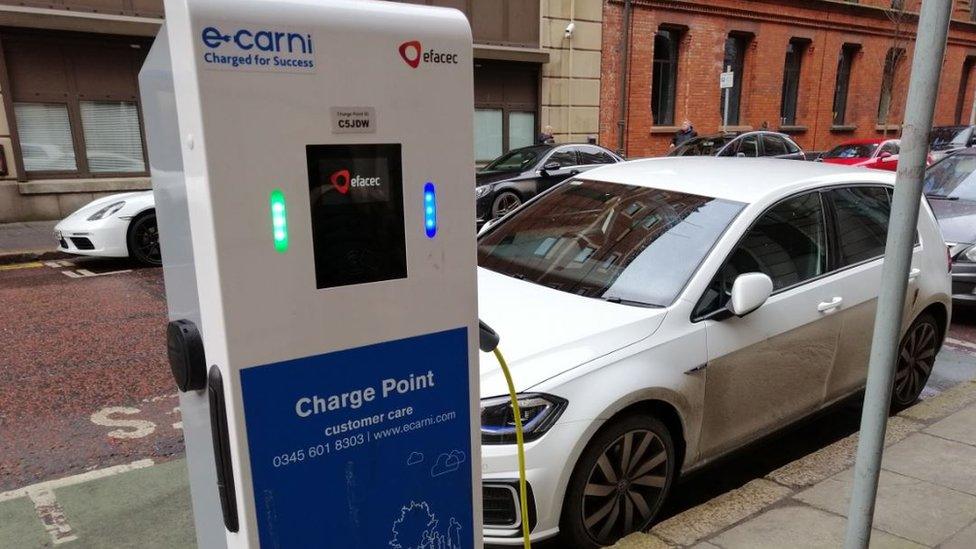Electric car owners ditch vehicles over lack of charging points
- Published
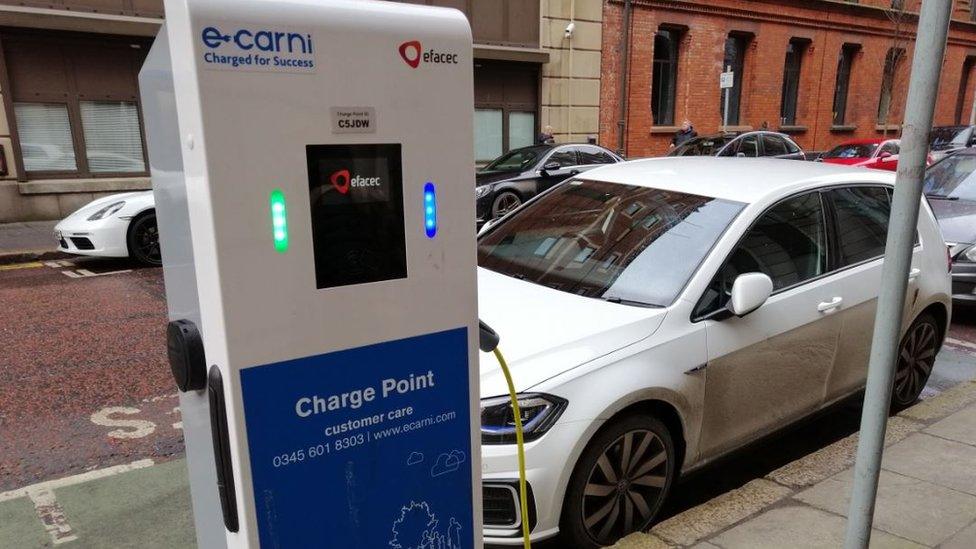
The state of Northern Ireland's electric vehicle recharging network is so bad that many drivers are dumping their cars and reverting to diesel and petrol models.
That is according to a drivers' representative body.
The Electric Vehicle Association NI has been giving evidence to Stormont's Infrastructure Committee.
The Department for Infrastructure said it was committed to encouraging more people to use electric vehicles.
The Electric Vehicle Association said the number of broken chargers across NI meant people were less inclined to convert to electric cars.
It said many of those who owned them were going back to fossil fuel vehicles and the state of the network was so poor that almost 60% of drivers it surveyed had considered returning to petrol or diesel vehicles.
It received feedback from electric vehicle users which described the network as "appalling," "terrible" and "unreliable".
Mark McCall from the association said part of the solution was match funding from government and also the introduction of a "pay-to-charge" model, rather than free charging points which were open to abuse by some drivers staying too long.

Mark McCall suggested improvements which could be made
A similar pay scheme in the Republic of Ireland introduced 18 months ago proved successful, Mr McCall said.
Twenty new chargers were planned for Northern Ireland, but these were models which were standard 10 years ago and lacked modern power capacity, he continued.
They would also not be in operation for another two years, he added.
'Market failure issues'
However, the Department for Infrastructure said its minister Nichola Mallon had matched funding under the EU InterReg scheme to increase the number of rapid charging points across Northern Ireland.
Departmental official Liz Loughran said the minister had also been working with councils to access the grant scheme and tackle the low uptake of electric vehicles.
"Since 2010, we have been working to try and support the introduction of electric vehicles," she said.
"The network which was developed by the former DRD (Department for Regional Development) was commercialised in 2015 and spun out to ESB, and is now operated on a commercial basis.
"That's in line with what happened in the rest of these islands.
"The commercialisation here has seen some quite significant market failure issues.
"It is something that needs to be addressed, but because of the commercial realities of this, we need to look at the market and work out what gaps the market is not going to fill and what we are going to fill."
She said the department had introduced changes to the planning laws to make it easier to install charging points at more locations across Northern Ireland.
The Electric Vehicle Association said changes needed to be made to the power network to make it more flexible, along with the use of smart meters, tariff reform and for decarbonisation to become part of the NI Utility Regulator's remit.
"We expect many of these issues can be solved in the new DfE (Department for Economy) energy strategy, which DfI (Department for Infrastructure) is involved with," said Mr McCall.
"Although, once again, it looks like this work may take years, rather than months."
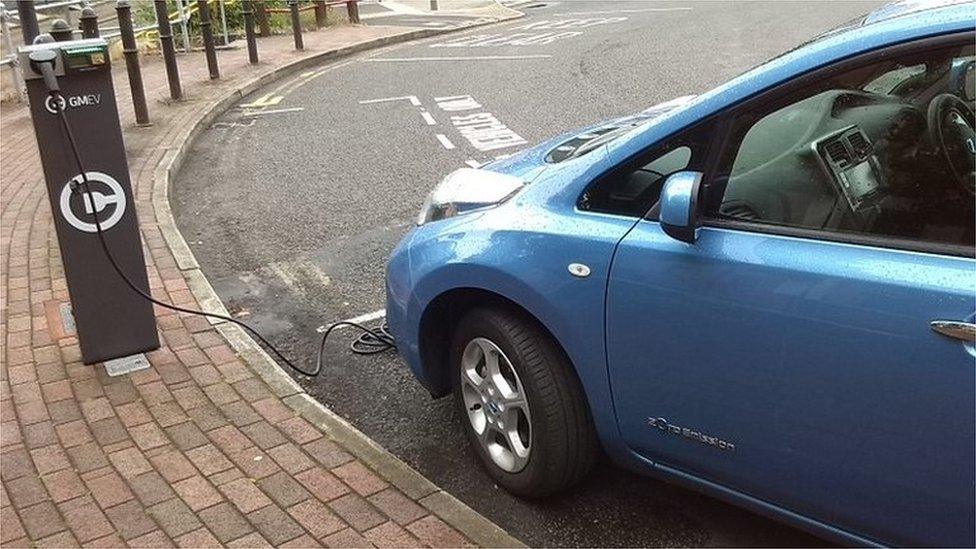
He said DfI should take a more pro-active role with local councils in fast-tracking the installation of new electric vehicle charging points and taking advantage of a £20M works grant scheme for the sector.
Mr McCall said the network needed to be a 24/7 operation, as some public charging points were "currently locked up at night".
Charging solutions were needed for taxi drivers, at train stations and airports, he said.
"2020 sales for new plug-in vehicles in Northern Ireland showed a 290% increase on 2019. So last year, we registered almost as many new electric vehicles here as in the seven-year period 2011-2017," he said.
"This transition is accelerating and we need policy and actions to keep pace."
Related topics
- Published27 April 2021
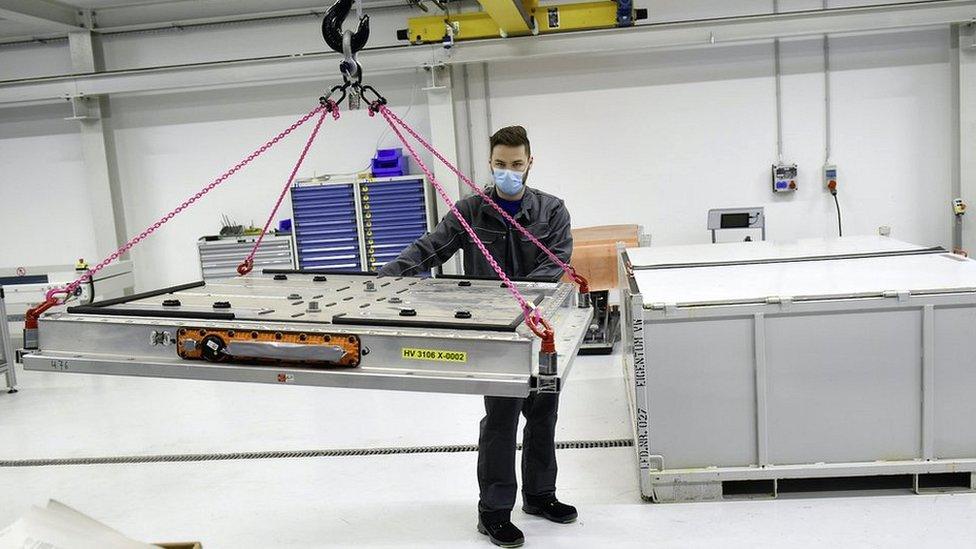
- Published19 May 2021
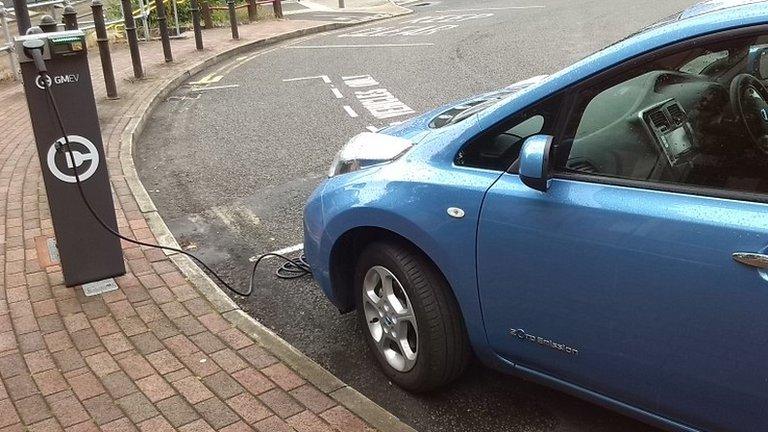
- Published8 February 2020
